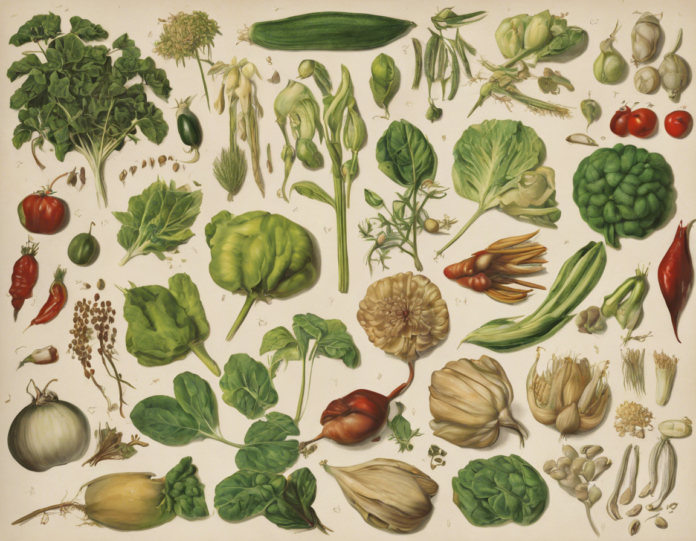Introduction:
Home gardening is a rewarding hobby that not only provides fresh produce but also serves as a therapeutic activity for many. One of the most critical aspects of home gardening is selecting the right seeds for your garden. Homegrown seeds are an excellent choice for those looking to have control over the quality and variety of their plants. In this comprehensive guide, we will delve into the world of homegrown seeds, exploring what they are, why they are beneficial, how to acquire them, and tips for successfully growing your own garden with these seeds.
What are Homegrown Seeds?
Homegrown seeds are seeds that have been saved from plants grown in your own garden. Instead of purchasing seeds from a store or online, gardeners can save seeds from the plants they have cultivated. These seeds are typically collected from open-pollinated or heirloom plants, ensuring that the next generation of plants will retain the desired characteristics.
Benefits of Using Homegrown Seeds:
- Adaptability: Homegrown seeds are well-adapted to your local climate and soil conditions since they have already been grown in your garden.
- Cost-Effective: Saving seeds from your garden can significantly reduce the expenses associated with purchasing new seeds each season.
- Biodiversity: By saving seeds from heirloom or open-pollinated plants, you are contributing to the preservation of plant biodiversity.
- Customization: Homegrown seeds allow you to select and save seeds from plants with the best flavor, size, or other desired attributes.
How to Acquire Homegrown Seeds:
- Save Seeds from Your Garden: Select plants that exhibit desirable traits, allow them to mature and produce seeds, and then collect and store the seeds properly.
- Seed Swapping: Participate in seed swapping events or join online forums where gardeners exchange seeds with one another.
- Join a Seed Library: Many communities have seed libraries where members can borrow, grow, and return seeds, fostering a culture of seed saving and sharing.
Tips for Growing Your Garden with Homegrown Seeds:
- Proper Harvesting: Allow seeds to fully mature on the plant before harvesting to ensure viability.
- Seed Storage: Store seeds in a cool, dry place away from direct sunlight to maintain their viability.
- Labeling: Properly label and organize your seed collection to avoid confusion and ensure you know the plant variety.
- Seed Viability: Check the viability of seeds by conducting germination tests before planting them in your garden.
- Crop Rotation: Rotate your crops each season to prevent disease buildup and nutrient depletion in the soil.
FAQs – Frequently Asked Questions:
- Can I save seeds from any plant in my garden?
-
Not all plants are suitable for saving seeds. It is best to start with open-pollinated or heirloom varieties as hybrid plants may not produce true-to-type seeds.
-
How long can I store homegrown seeds?
-
Properly stored seeds can remain viable for several years. However, some seeds have a shorter shelf life, so it is essential to check their viability before planting.
-
Do I need any special equipment to save seeds?
-
While some plants may require specific techniques for seed saving, basic supplies such as envelopes, jars, and markers are often sufficient for most home gardeners.
-
Can I sell the homegrown seeds I save?
-
Selling homegrown seeds may be subject to regulations depending on your location. It is advisable to research local laws regarding seed sales before offering them for purchase.
-
What is the difference between open-pollinated and hybrid seeds?
- Open-pollinated seeds are pollinated naturally by insects, wind, or other means, resulting in plants that produce seeds true to their parent plants. Hybrid seeds are created by cross-pollinating two different parent plants to achieve specific traits.
In conclusion, homegrown seeds offer gardeners a sustainable, cost-effective, and rewarding way to grow their own gardens. By saving seeds from your plants, you not only ensure a continuous supply of crops tailored to your preferences but also contribute to the conservation of plant diversity. Embrace the art of homegrown seeds in your garden and enjoy the bountiful harvests they provide year after year.
